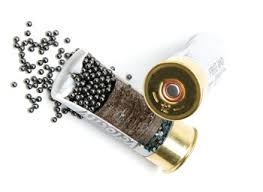Two articles about lead shot; Europe (and in particular Denmark) are ahead of us in eliminating the use of this poisonous substance in shooting. about time that DEFRA got off the fence – even the British shooting lobby is up for change.

“Testing Sainsbury’s game meat: we have a long-standing interest in the issue of lead ammunition. Lead is a poison and yet it is commonly used to kill species which end up in the human food chain. Around 6000 tonnes of lead are deposited in the countryside in the form of spent ammunition every year. Non-toxic alternative ammunition is readily available and is mandatory in some other countries and certain parts of the USA. Many game dealers, butchers and supermarkets sell lead-shot game meat without any health warnings. We have collected samples of game meat from Sainsbury’s and these have been sent off for analysis at a laboratory. Read more about what we’ve done – click here. We’ll let you and Sainsbury’s know the results when they become available later in the spring.” From a Wild Justice newsletter.
“The long awaited EU ban on the use of lead shots in wetlands finally came into force on 25 January 2021. This sets the timetable for the ban’s implementation in Member States: they have until 15 February 2023, or 2024 if the country’s surface consists of more than 20% of wetlands. Why does this matter? This law will reduce the annual death of an estimated one million waterbirds which currently die of lead poisoning in the EU, and halt the extreme poisoning of wetland wildlife. It will save millions of lives. Lead shot consists of tiny round bullets that hunters spray out of their rifles to kill animals. They use it to hunt waterbirds and other small animals, in wetlands and elsewhere. It is estimated that hunters pollute our wetlands with more than 20,000 tonnes of lead shot every single year, despite the existence of alternatives.” From a recent BirdLife International newsletter.
